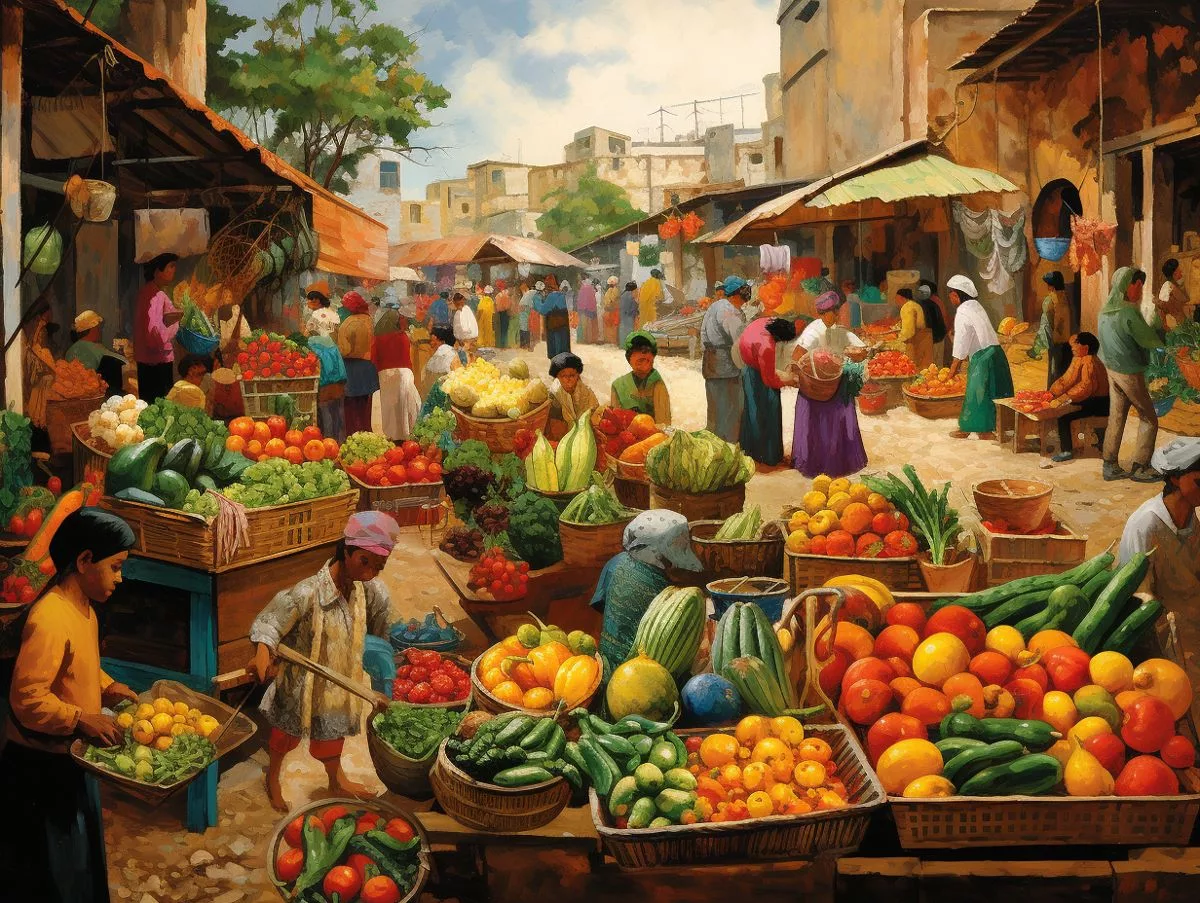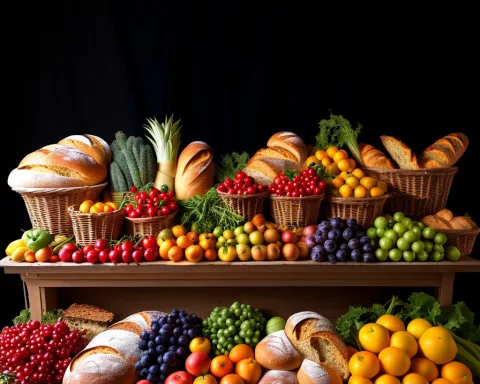Join the fight against food waste this holiday season with practical steps and mindful practices. By planning meals efficiently and purchasing locally and seasonally, we can reduce waste and promote sustainability. Mindful food storage, portion control, and creative use of leftovers are also important techniques. Businesses can also contribute to waste reduction with integrated waste management strategies. Let’s embrace sustainable feasting and build a more responsible and environmentally friendly future.
Embrace Sustainable Feasting: Your Role in Reducing Food Waste This Holiday Season. Learn practical steps to minimize food waste and mindful practices to take the extra step in food conservation. By adopting these practices, we can each have a crucial role to play in reducing food waste and help build a more sustainable future.
SectI. The Problem: The Unseen Consequences of Festive Feasting
As we welcome the holiday season with open hearts, we are also ushered into an era of grand celebrations, boundless generosity, and lavish feasts. Yet, amidst the joyous indulgence, we often overlook a grave global issue—food waste. Particularly in the City of Cape Town, the authorities are making vigorous efforts to enlighten citizens about the severity of food wastage during holiday festivities.
This effort is not merely an advocacy for responsible consumption. It also highlights the extensive implications of food waste, which range from escalating carbon emissions to fueling climate change. When we waste food, the repercussions extend far beyond the loss of the edible item itself. The wastage signifies a cumulative depletion of resources—water, land, and energy. Furthermore, the remnants of our feasts that are discarded in landfill sites generate greenhouse gases, exacerbating climate change and advancing the environmental crisis.
SectII. Joining the Cause: Practical Steps to Minimize Food Waste
In their campaign against food waste, the City of Cape Town does not merely focus on spreading awareness about the issue. They also provide practical, actionable recommendations that every household can easily implement. The crux of their initiative lies in the importance of careful planning—which starts at shopping and extends to meal preparation.
An efficiently planned meal, accompanied by a comprehensive shopping list, can be a potent weapon against excessive buying and consumption. By being aware of what you precisely need and planning your meals around it, you can prevent unneeded purchases that ultimately contribute to waste.
The movement also emphasizes the importance of purchasing locally and according to the season. By patronizing local farmers and opting for seasonal produce, we can cut down on the carbon footprint associated with shipping food over long distances. This practice not only bolsters the local economy but simultaneously promotes environmental sustainability.
SectIII. Mindful Practices: Taking the Extra Step in Food Conservation
Attention to food storage is another key element in curbing wastage. By making sure refrigerated items are preserved at the right temperatures and by adhering to the first-in, first-out principle of food storage, we can significantly prolong the shelf life of food items, thereby reducing waste.
Equally important is the mindful management of refrigerator or freezer space, specifically during sporadic power outages. This can avoid unnecessary spoilage of fresh fruits and vegetables.
Portion control is another potent technique in the fight against food waste. By serving smaller initial portions and offering seconds only if desired, we can dramatically decrease leftovers and food wastage.
Moreover, leftovers, which are often dismissed as waste, can be innovatively transformed into new and appealing dishes, further minimizing the need to throw away food.
Another advocated practice is composting, a process of recycling organic waste. Composting food scraps not only helps reduce landfill waste but also produces nutrient-rich compost which can enrich home plants and gardens.
SectIV. A Collective Effort: The Role of Businesses in Waste Management
Besides individual efforts by households, the City of Cape Town is also calling upon businesses to contribute to waste reduction. Current regulations mandate businesses to form integrated waste management strategies that cover multiple aspects of waste handling. These now require a comprehensive plan to significantly decrease their organic waste.
This holiday season, let’s commit ourselves to conscientious feasting. By adopting mindful practices—such as meal planning, responsible shopping, correct food storage, portion control, creative usage of leftovers, and composting—we each have a crucial role to play in reducing food waste. Together, we can help build a more sustainable future. Let’s ensure our holiday season is not only joyful but also environmentally responsible.
1. What is the issue with food waste during holiday festivities?
Food waste during holiday festivities has severe global implications, ranging from escalating carbon emissions to fueling climate change. When food is wasted, it signifies a cumulative depletion of resources, including water, land, and energy. Furthermore, discarded remnants of feasts in landfill sites generate greenhouse gases, exacerbating climate change and advancing the environmental crisis.
2. What are the practical steps to minimize food waste during holiday celebrations?
The City of Cape Town recommends careful meal planning accompanied by a comprehensive shopping list. Efficiently planned meals can prevent unneeded purchases that ultimately contribute to waste. Purchasing locally and according to the season can cut down on the carbon footprint associated with shipping food over long distances.
3. What are some mindful practices to take the extra step in food conservation?
Attention to food storage, mindful management of refrigerator or freezer space, portion control, creative usage of leftovers, and composting are all important techniques to minimize food waste.
4. How can businesses contribute to waste reduction during holiday festivities?
Businesses can contribute to waste reduction by implementing integrated waste management strategies that cover multiple aspects of waste handling, including significantly decreasing their organic waste.
5. What are some benefits of composting?
Composting food scraps not only helps reduce landfill waste but also produces nutrient-rich compost that can enrich home plants and gardens.
6. What is the goal of embracing sustainable feasting during the holiday season?
The goal of embracing sustainable feasting during the holiday season is to minimize food waste and promote sustainability, thereby building a more responsible and environmentally friendly future.












